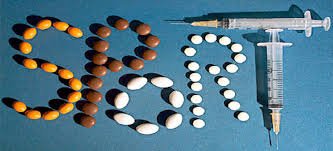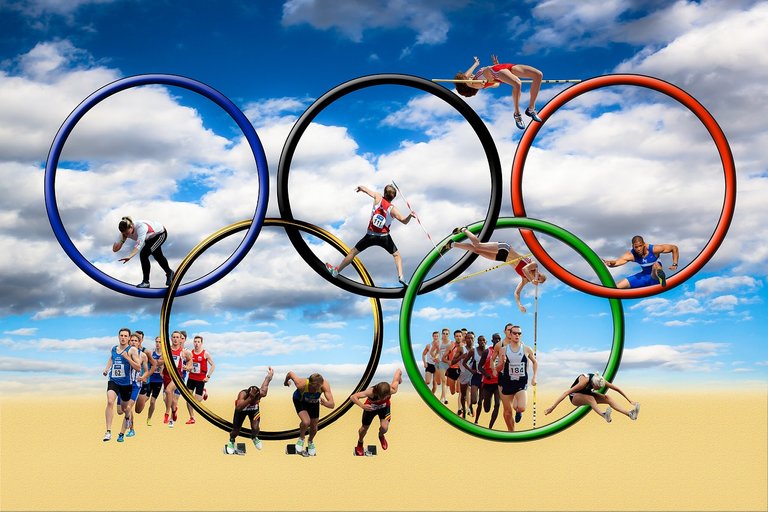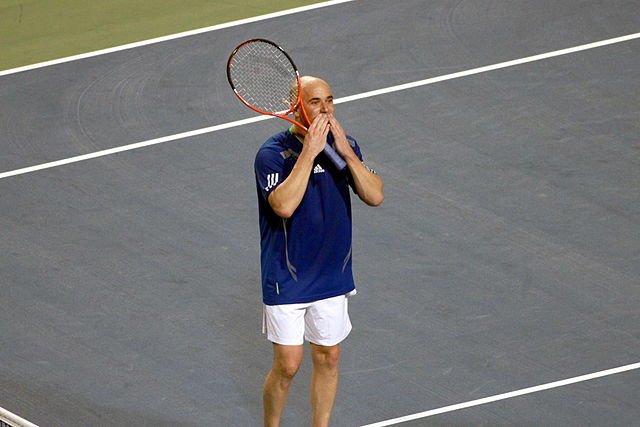In sports, is called doping to the use of drugs or any other stimulating substance, popularly known as a drug, with the aim of enhancing the performance of athletes.
.jpg)
Source
Also known as doping, doping involves the use of substances that generate exceptional performance of the body, although with possible side effects harmful to health. Due to this danger and because it prevents normal competition and distorts the sports spirit, doping is sanctioned in professional sports.
Each discipline has a code that specifies which substances and methods are prohibited. Through anti-doping control, authorities analyze the urine of athletes in search of illicit drugs: if it is found that an athlete incurred in doping, he is sanctioned.

Source
The prevalence and installation of the idea that the most important thing is to win, no matter how but to do it, generates that many athletes use prohibited stimulants to achieve a better performance in the sports competitions in which they intervene.
The use of diuretics is also considered doping. This is mainly because they help to eliminate other prohibited substances and, therefore, protect the offender in anti-doping tests.
Each sports association has a detailed list of drugs or drugs that are prohibited because they are considered direct performance enhancers as well as the amounts considered normal.
Then, the punishment for the use of some prohibited substance will be evaluated at a local level and not general.
Currently, all sports competitions seek to detect and therefore prevent the use of prohibited substances to take advantage, for example, is that once the meetings are held, a committee raffles which players, athletes who must undergo special tests to corroborate that they have not incurred any infraction of this type. The urinalysis, immediately after the sporting event, is the preventive measure most used in the world by the different sports associations.
If the analysis is positive in some substance that is not allowed, a punishment will be imposed on the athlete or team in question.
.jpg)
Source
The suspension of the player, the removal of points, economic fines, and the elimination of the competition, are some of the most frequent punishments.
Meanwhile, the player who is doped is usually suspended in the practice of sport for a period of time determined by the competent authority.
A new episode for doping surprises the sports world. Mexican boxer Saul "Canelo" Alvarez tested positive for Clenbuterol, a fact that adds to a long list of athletes who, with guilt or innocence, have fallen into the pit of prohibited substances.
.jpg)
Source
Clenbuterol is an anabolic medication that is used to increase the weight or muscle mass of an organism.
After the impressive news, the "Canelo" did not hesitate to express himself publicly to deny his complicity in the doping chapter. "I am an athlete who respects the sport and this surprises me and bothers me because it had never happened to me," said the athlete.
The situation of the Aztec boxer puts on the table other cases that also scandalized the sports pages. One of the most talked about was the American cyclist Lance Armstrong, who in 2013 confessed in an interview with Oprah Winfrey to have consumed enough substances to win the seven Tour de France.
During the conversation, Armstrong revealed that he had consumed, in addition to EPO, cortisone, testosterone and growth hormone during the Tours, he won and acknowledged that he would not have won the seven Tours without doping. At present Armstrong is sanctioned in my life, although it competes in triathlons for fans.

Source
André Agassi, American extenist, tested positive for methamphetamine 'crystal' and subsequently tricked the members of the ATP by making them believe that he had accidentally used it to avoid a doping penalty.
One of the best tennis players of his time explained that he began taking the crystal, whose possession is punishable by up to five years in prison in the United States in 1997 when his fitness was in decline and he was full of doubts about his imminent marriage to the actress Brooke Shields.

Source
These substances in many cases jeopardize the life of the athlete who consumes it and may end up with his sports career and his prestige if he succeeds in a positive control and in the event of a sports club, it will harm the rest of his teammates That's why I think that if an athlete loves sport as I believe it, otherwise I would not live on it or devote much of his life to it, before committing an act of this nature you have to think about the consequences that will bring this and remember the effort they once made to be the athletes that are today, in the case of elite athletes Since the sport should be enjoyed and not fall into the temptation to be the best in the wrong way, because this can get to finish with the athlete in every way.
References.
- http://www.latimes.com/sports/boxing/la-sp-canelo-alvarez-banned-substance-20180305-story.html
- https://www.mirror.co.uk/sport/boxing/boxings-sanctioning-bodies-deliver-controversial-12135136
- http://metro.co.uk/2018/03/06/clenbuterol-drug-canelo-alvarez-tested-positive-ahead-golovkin-rematch-7365803/
- https://ukad.org.uk/education/athletes/performance/consequencesofdoping/
- https://no-doping.fifa.com/en/what-is-doping/reasons-behind-doping.html
- http://www.unesco.org/new/en/social-and-human-sciences/themes/anti-doping/fund-for-the-elimination-of-doping-in-sport/
- http://www.doping-prevention.com/doping-in-general/history-of-doping.html